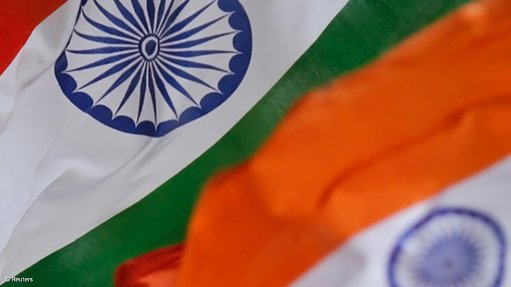
Photo by: Reuters
KOLKATA (miningweekly.com) - A preferential trade agreement (PTA) between India and South Africa would miss the December target, with the South African government seeking more time to bring other South African Customs Union (Sacu) members on board.
According to an official in India’s Commerce Ministry, the Indian government had sought an early conclusion of a PTA with the African nations to boost India’s bilateral trade with mineral-rich countries, but the South African government had conveyed that “internal discussions within Sacu were necessary and time consuming”.
Indian Commerce Minister Anand Sharma had urged his South African counterpart Dr Rob Davies to use his good offices to expedite talks within Sacu towards an early conclusion of a PTA, under negotiation for the last five years, the official said.
Sacu comprises South Africa, Botswana, Lesotho, Namibia and Swaziland.
No fresh schedule has been set for finalisation of the PTA and this would depend on the progress made in the next round of negotiations.
India was in favour of a December date for concluding the PTA and securing African support ahead of the forthcoming ninth World Trade Organisation Ministerial meeting, in Bali, billed as make-or-break for the Doha round of trade negotiations, the official said.
He pointed out that one of the issues on which the Indian side was waiting for a response from the African nations, was the proposed average margin preference of 70%, or tariff rates on imports 70% lower than that applicable on imports from countries with most-favoured-nation status, the official added.
In trade reports exchanged between the two Ministers over the past year, the pharmaceuticals, agriculture, minerals and oil sectors had been identified for private sector investments and integration between the two. But trade negotiators from the Indian side perceived that confusion had been created over India’s interests in two sectors, pharmacuticals and minerals.
In the pharmaceuticals sector, ‘external interests’ had cast doubts over the credibility of Indian low-cost generic medicines, while in the case of the mineral sector, attempts were made from the African side to impress on India the governments' desire that beneficiation take place in the host countries, the official said.
However, in his interactions with Davies last month, Sharma reiterated that considering India-SA bilateral trade touched $15-billion, and was forecast to reach $50-billion if the PTA was concluded, with private Indian companies like Tata, Essar and Bharti Group already present in the South Africa, bilateral trade interests would not be restricted to the mere shipment of minerals.
Both governments felt that the India-Africa Business Council - a bilateral business forum - should play a proactive role in facilitating the PTA, through fostering a better understanding of the issues involved, the official added.